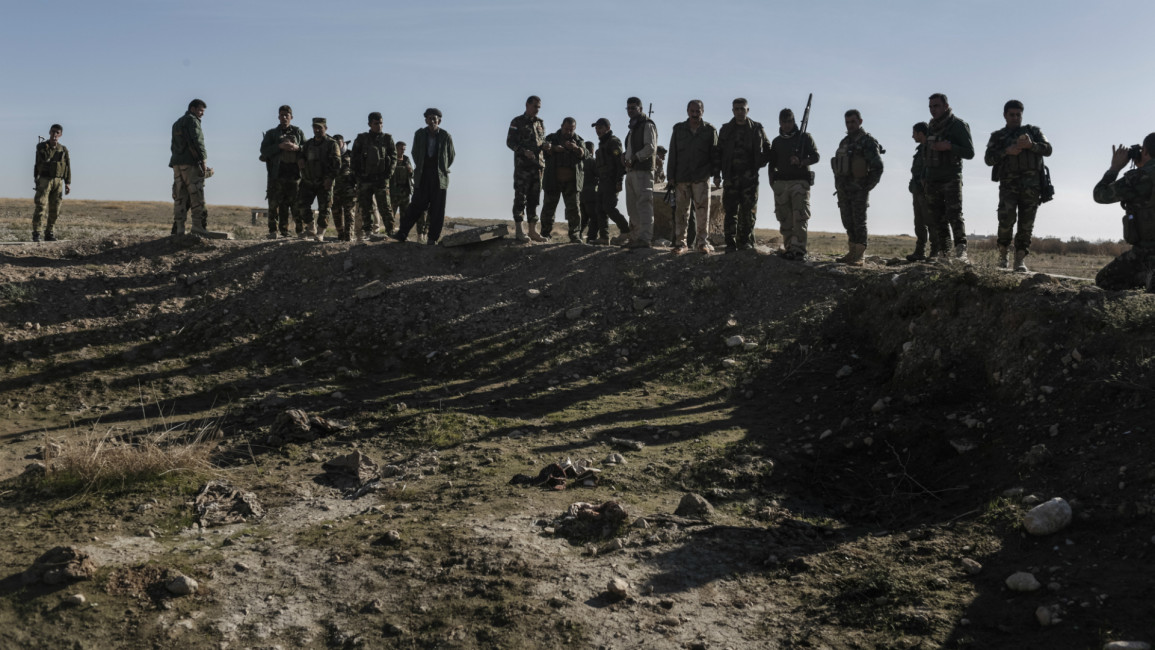Iraqi policemen 'massacred then buried in IS mass grave'
A grave housing hundreds of corpses, some visible from the surface, was discovered near the town of Hammam al-Alil early in November.
Bodies, estimated to have been there for around three weeks, had bound hands and ankles and were blindfolded. Other prisoners had been beheaded.
"This is another piece of evidence of the horrific mass murder by ISIS of former law enforcement officers in and around Mosul," said Joe Stork, deputy Middle East director at Human Rights Watch, using another acronym for IS.
"ISIS should be held accountable for these crimes against humanity."
Witnesses told HRW that on October 19, before Iraqi forces chased IS out of the area, militants rounded up at least 2,000 people and forced them to head north toward Mosul and Tal Afar. Most did not have cars so had to walk for miles.
One man said that on the first night, as the stopped in the village of Safiyah, IS separated the former policemen, loaded them into vehicles, and drove them away.
A few days later, on October 28, another witness described how he saw IS fighters drive four large trucks carrying a total of 100 to 125 men, some of whom he recognised as former policemen.
Minutes later he heard automatic gunfire and cries of distress. The next night, he saw IS fighters bring the same four trucks, carrying between 130 and 145 men. Minutes later he again heard automatic gunfire and screams.
The mass grave was discovered by Iraqi forces earlier this month, where bodies had been strewn among garbage and wild dogs were eating at the decaying corpses.
Several atrocities have been reported since operations to liberate Mosul began a month ago, including civilians being used as human shields or forcibly evacuated from their homes as IS retreat.
Widespread or systematic murder carried out by a state or organised group as part of an attack against a civilian population - as part of a policy to commit murder - constitutes a crime against humanity, HRW said in its report released on Thursday.
The killing of prisoners during an armed conflict constitutes a war crime, it added.
However the International Criminal Court's jurisdiction only applies to crimes committed in the territory of countries that are parties to the Rome Statute, or to situations referred to the court by the UN Security Council. Iraq has not yet ratified the Rome Statute.



